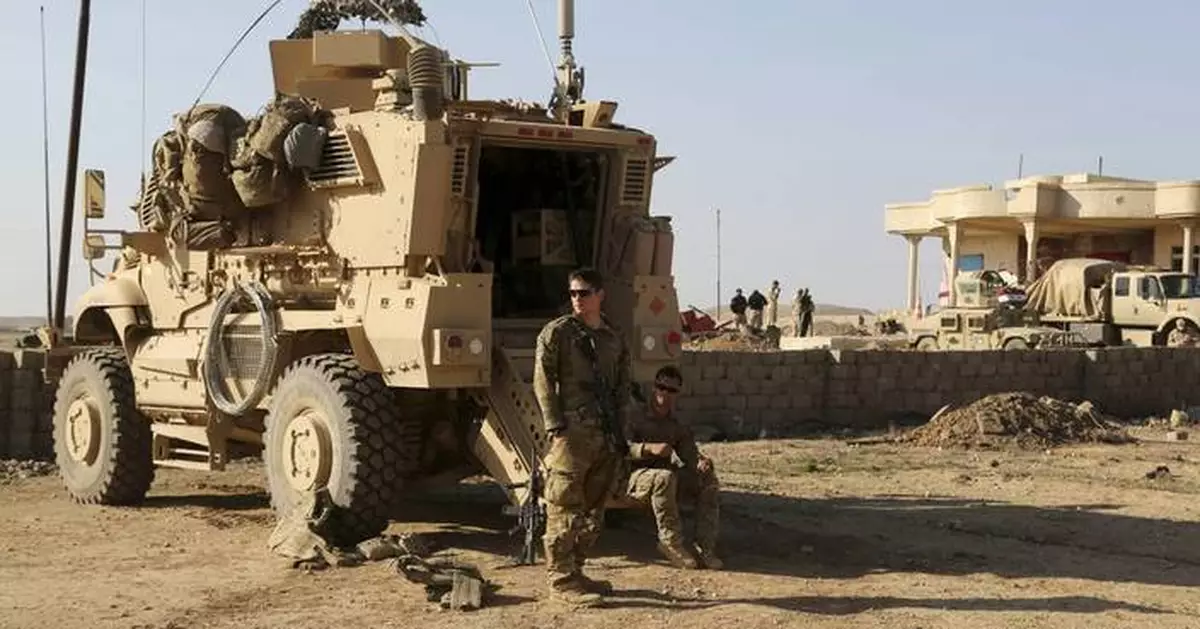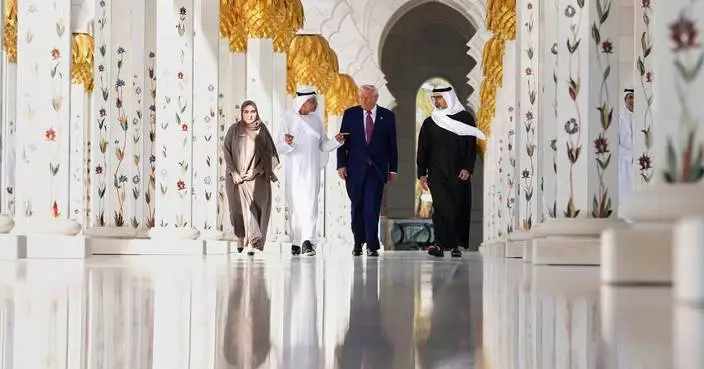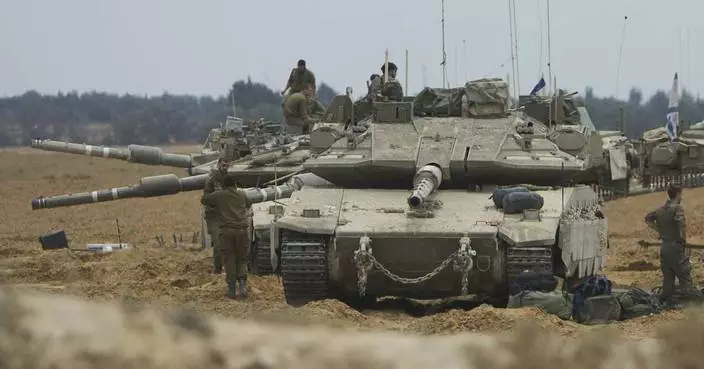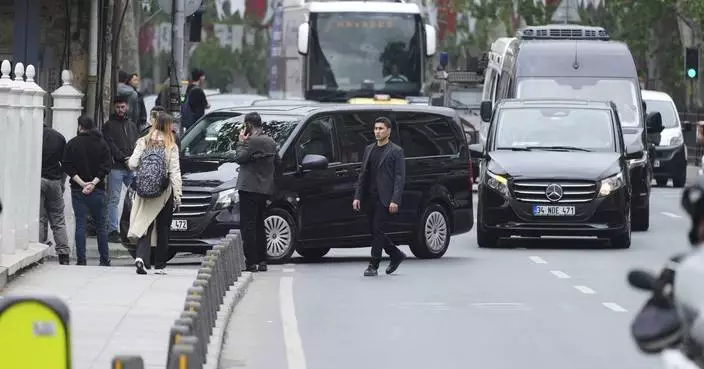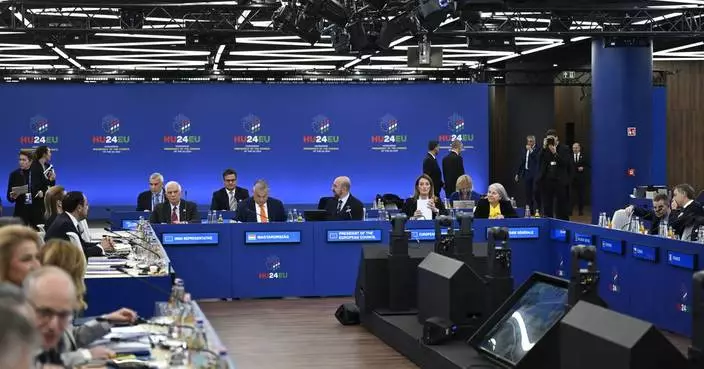WASHINGTON (AP) — A 34-year-old soldier serving with the Indiana National Guard in Iraq has died in a non-combat incident, the Army said Monday.
Capt. Eric Richard Hart, 34, of Indianapolis, Indiana, died Saturday in Iraq, the Army National Guard said in a statement. Hart was assigned to the Headquarters and Headquarters Battalion of Indiana’s 38th Infantry Division in Iraq. His death is under investigation.
While all combat operations have ceased for U.S. forces in Iraq, the U.S. maintains a presence of 2,500 troops to assist the Iraqi military in counter-Islamic State operations and training. Those forces have repeatedly come under attack in the 14 months since Hamas attacked Israel, spurring a wider, deadly response from Tel Aviv.
During the last year, Iranian-backed forces have launched one-way attack drones, rockets and missiles at U.S. facilities in Iraq in response to Israel's military operations in Gaza and Lebanon.
In September, the U.S. announced an agreement with the Iraqi government to wrap up the American-led coalition's military mission against the Islamic State group in Iraq by 2025. U.S. troops have departed some bases that they have long occupied during a two-decade-long military presence in the country.
Washington has had a continuous presence in Iraq since its 2003 invasion. Although all U.S. combat forces left in 2011, thousands of troops returned in 2014 to help the Iraqi government defeat IS.
Since the extremist group lost its hold on the territory it once seized, Iraqi officials have periodically called for a withdrawal of coalition forces, particularly in the wake of a U.S. airstrike in January 2020 that killed Iranian Gen. Qassem Soleimani and Iraqi militia leader Abu Mahdi al-Muhandis outside the Baghdad airport.
Before Monday's announcement, a total of 4,419 troops had died in Iraq since the beginning of the 2003 Operation Iraqi Freedom military campaign, including 3,482 combat deaths and 937 non-combat deaths, according to the latest Defense Department data. A total of 31,993 troops were wounded in action in Iraq.
The Defense Department's summary does not include all of the forces who returned from war with wounds that surfaced later, such as post-traumatic stress disorder or toxic exposure.
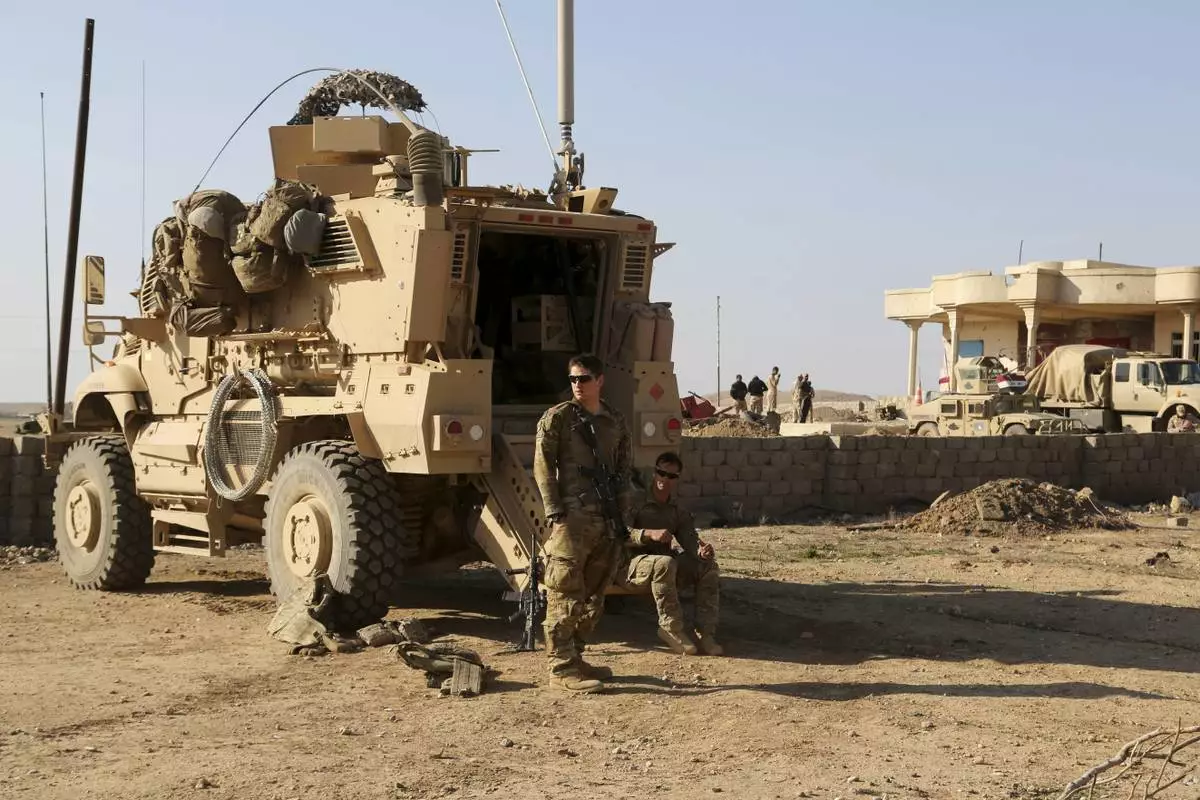
FILE - U.S. Army soldiers stand outside their armored vehicle on a joint base with the Iraqi army, south of Mosul, Iraq, Feb. 23, 2017. (AP Photo/ Khalid Mohammed, File)
ABU DHABI, United Arab Emirates (AP) — President Donald Trump used the first major foreign trip of his second term to outline a vision for restoring global stability that is grounded in pragmatism and self-interest rather than values, holding out U.S. ties to wealthy Gulf countries as a model for America’s longtime foes.
His four-day swing through Saudi Arabia, Qatar and the United Arab Emirates, which ends Friday, put a spotlight on Trump’s transactional approach to foreign affairs as he was feted by autocratic rulers with a trio of lavish state visits where there was heavy emphasis on economic and security partnerships.
His trip played out against the backdrop of stubborn global conflicts, including Gaza and Ukraine, that showed the limits of his influence. But Trump insisted he was turning the page on American “interventionalism” in the region as he moved to recognize the new government in Syria for the first time and prodded Iran to engage on nuclear talks before it’s too late.
Some takeaways from Trump’s travels:
Presidential trips to the Middle East usually feature at least some public calls for authoritarian governments to improve their human rights efforts. Not this one, as Trump celebrated his business deals with Gulf royals and admired their wealth.
Trump toured the marble and gilded palaces of Gulf rulers and deemed them “perfecto” and “very hard to buy.” He praised the “gleaming marvels” of the skyline in Saudi Arabia. And he groused about the “much less impressive” Air Force One.
In Trump’s remarks at a VIP business conference in Riyadh, he went out of his way to distance himself from the actions of past administrations, the days when he said American officials would fly in “in beautiful planes, giving you lectures on how to live and how to govern your own affairs.”
Rights advocates took that as a pledge of nonintervention, swearing off some of the pressure past U.S. presidents have brought to bear on partners to varying degrees to ease up on detentions, suppression of critics and other issues.
“It’s absolute support for absolute monarchy,” said Saudi exile Abdullah Alaoudh. His father, a Saudi cleric with a wide following there, is imprisoned in the kingdom.
Some rights advocates said Trump officials gave them private assurances the administration was working on behalf of detained Americans and rights advocates. Tommy Pigott, a deputy spokesman at the State Department, declined to say whether Trump raised those or other rights issues in discussions with Gulf royals.
While Trump was in the Mideast, Vladimir Putin opted to skip direct peace talks with Ukraine’s Volodymyr Zelenskyy despite the U.S. president's strong calls for them to meet face to face.
Trump has been pushing Putin and Zelenskyy to move with greater haste to end Russia's grinding war in Ukraine.
But after it became clear Putin wouldn’t be attending talks in Turkey this week and would instead be sending underlings to Istanbul, an annoyed Trump insisted he knew all along that it was highly likely Putin would be a no-show.
“I don’t believe anything’s going to happen whether you like it or not, until he and I get together,” Trump said. “But we’re going to have to get it solved because too many people are dying."
As he wrapped up his visit on Friday, Trump said the face-to-face would happen "as soon as we can set it up.”
Trump was scheduled to fly back to Washington on Friday, but tried to keep people guessing until the end. He teased late Thursday that he would be heading to a “destination unknown” — “probably" Washington, he added. His opaque language stoked speculation that he might make a drop-by to Turkey.
But on Friday morning, he told reporters he needed to get back to Washington. His daughter Tiffany had her first child while the president has been away.
“I would actually leave here and go,” Trump said. “I do want to see my beautiful grandson.”
Just two months ago, the Trump administration wasn’t sold on Syria’s interim government led by Ahmad al-Sharaa, the onetime al-Qaida-affiliated insurgent. They worried the Syrian president didn’t have the legitimacy to govern the country’s ethnically diverse population.
Clashes broke out in early March, killing hundreds and targeting many more members of the Alawite religious minority to which the ousted Syrian leader Basher Assad belongs.
The moment gave the Trump White House pause about easing sanctions on Syria. But Trump signaled Monday that he was having a change of heart and was moving toward lifting the Syria sanctions. A day later, he announced the move during an address to Gulf leaders.
Trump then took it another step by agreeing to meet al-Sharaa.
Trump said he was impressed with al-Sharaa, who not that long ago had a $10 million U.S. bounty on his head. The president called him a “young, attractive guy” with a "very strong past.”
Trump said it was recommendations from Turkish President Recep Tayyip Erdogan and Saudi Crown Prince Mohammed bin Salman that nudged him to take a chance on al-Sharra.
“President Erdogan called me and said: ‘Is there any way you could do that? Because if you don’t do that, they don’t have a chance,’” Trump said. “So, I did it.”
Throughout the trip, Trump felt more than comfortable dishing out exaggeration and hyperbole.
“This has been an amazing trip.” Trump told reporters Thursday as Air Force One was about to land in Qatar. “We’ve raised trillions of dollars of investment for our country.” A little later he put the figure at $4 trillion.
That figure is about two times the combined gross domestic products of Saudi Arabia, Qatar and the United Arab Emirates, meaning that any announced investments would likely accrue over several years — if at all — in ways that might not show up in overall U.S. economic growth numbers.
Boeing confirmed that Qatar’s $96 billion purchase of its 787 and 777X jets was the largest order for 787s and wide body jets in the company’s history. Trump enthused it was “the biggest order in the history of, I think, aviation, certainly of that size” of jets.
Trump also went overboard in running down the economic record of his predecessor, Democrat Joe Biden, at one point declaring, “The days of economic misery under the last administration are rapidly giving way to the greatest economy in the history of the world.”
The U.S. economy grew at 2.8% last year. It declined at an annualized rate of 0.3% during the first three months of this year.
While Trump's trip initially was conceived as a visit to reward countries that invest in the United States, Trump at one point hoped it also would herald significant steps to end the wars in Gaza and Ukraine. Positive news on both fronts proved elusive.
Trump barely mentioned either conflict on his trip – and when he did, it was generally in the context of his assertion that they wouldn’t have occurred had he won reelection in 2020.
As Israel stepped up an offensive in Gaza — a prelude to a promised full takeover of the territory if Hamas doesn’t release the remaining hostages in its captivity — Trump was again musing about the creation of a “freedom zone” in its territory. It's a notion rejected by Palestinians and the broader Arab world because Trump's plan would relocate civilians from Gaza to allow for rebuilding.
Israel conducted significant airstrikes all week in Gaza as Trump was in the region and the fighting on the ground appeared to escalate Friday morning even before Trump left the UAE.
Trump was already facing questions about conflicts of interest for traveling to the Middle East to shape U.S. policy at a time when his family’s business interests in the region have boomed. He attempted to quiet worries about national security and constitutional questions by insisting he’s smart to accept a $400 million luxury plane from Qatar and use it as Air Force One.
“Why should our military, and therefore our taxpayers, be forced to pay hundreds of millions of Dollars when they can get it for FREE,” Trump posted on his social media site during his Middle East swing.
The president also dodged questions about a state-backed investment company in Abu Dhabi using a Trump family-aligned stablecoin for a $2 billion investment in the world’s largest cryptocurrency exchange.
“I don’t know anything about it,” he said.
Beyond that, the Trump family has piled up deals to license its brand for real estate projects, and to build Trump towers and golf courses, around the Middle East. White House press secretary Karoline Leavitt says it’s “frankly ridiculous” to wonder if those profits might influence Trump’s governing decisions.
Madhani reported from Dubai. Associated Press writers Josh Boak, Will Weissert and Ellen Knickmeyer in Washington contributed to this report.
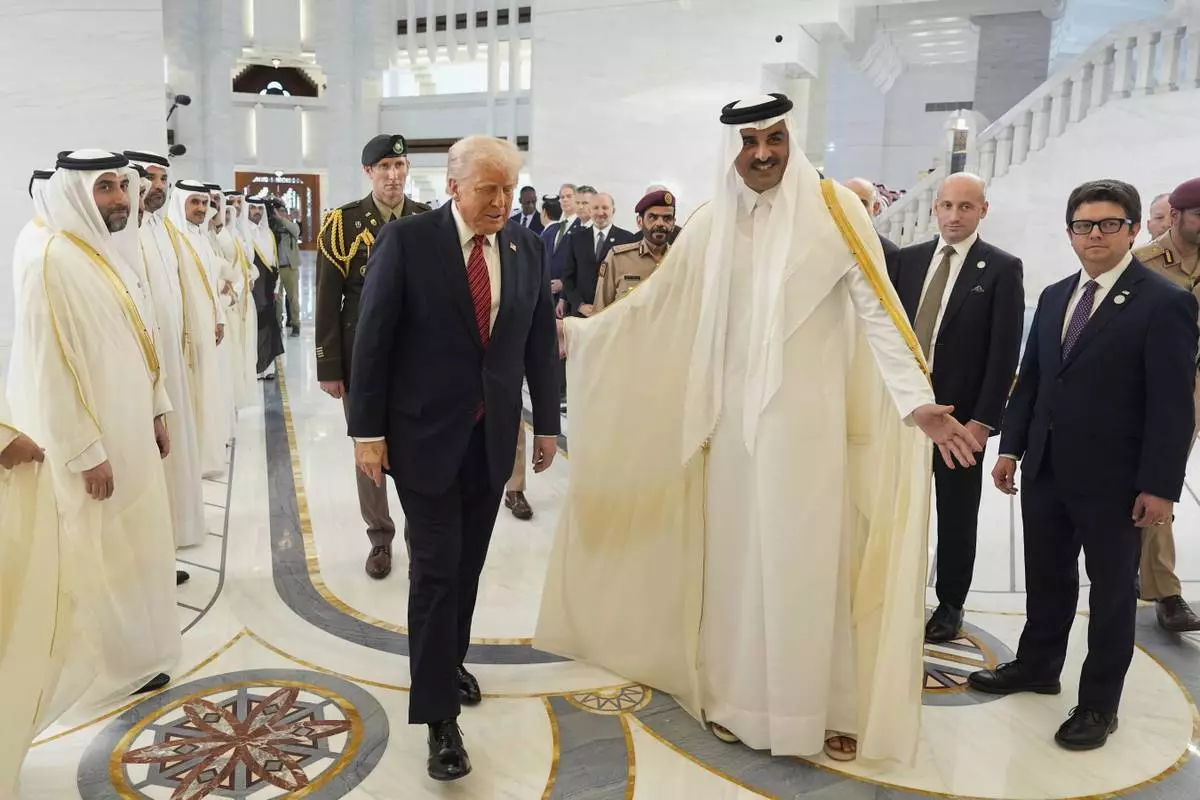
Qatar's Emir Sheikh Tamim bin Hamad Al Thani welcomes President Donald Trump during an official welcoming ceremony at the Amiri Diwan in Doha, Qatar, Wednesday, May 14, 2025. (AP Photo/Alex Brandon)
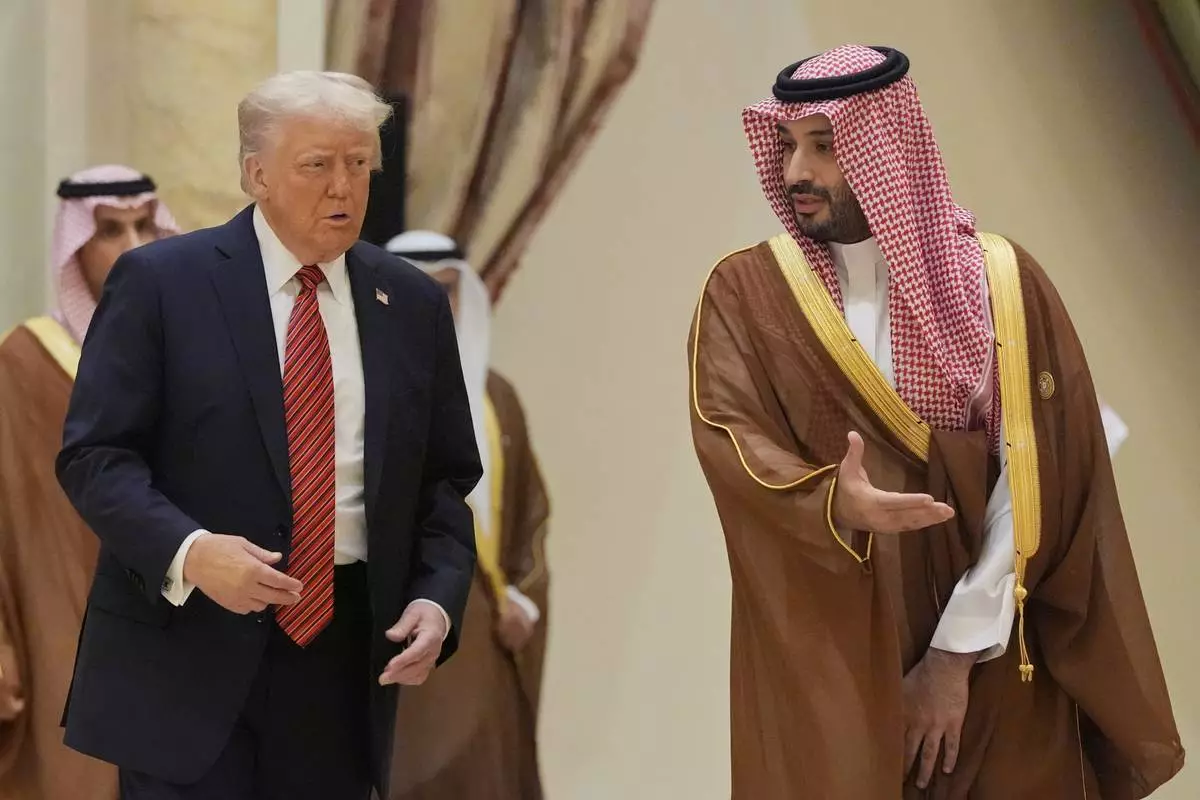
President Donald Trump arrives with Saudi Crown Prince Mohammed bin Salman for the group photo with Gulf Cooperation Council leaders during the GCC Summit in Riyadh, Saudi Arabia, Wednesday, May 14, 2025. (AP Photo/Alex Brandon)
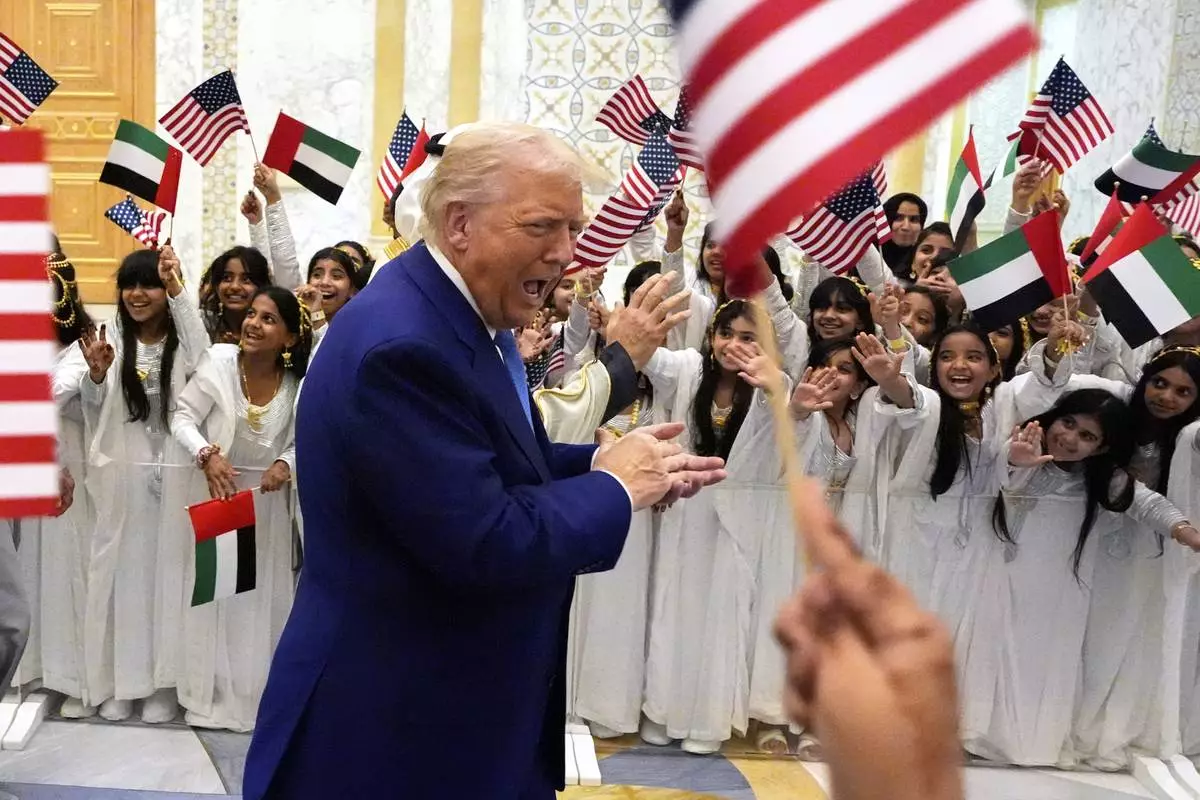
President Donald Trump and UAE President Mohammed bin Zayed Al Nahyan arrive at Qasr Al Watan, Thursday, May 15, 2025, in Abu Dhabi, United Arab Emirates. (AP Photo/Alex Brandon)



